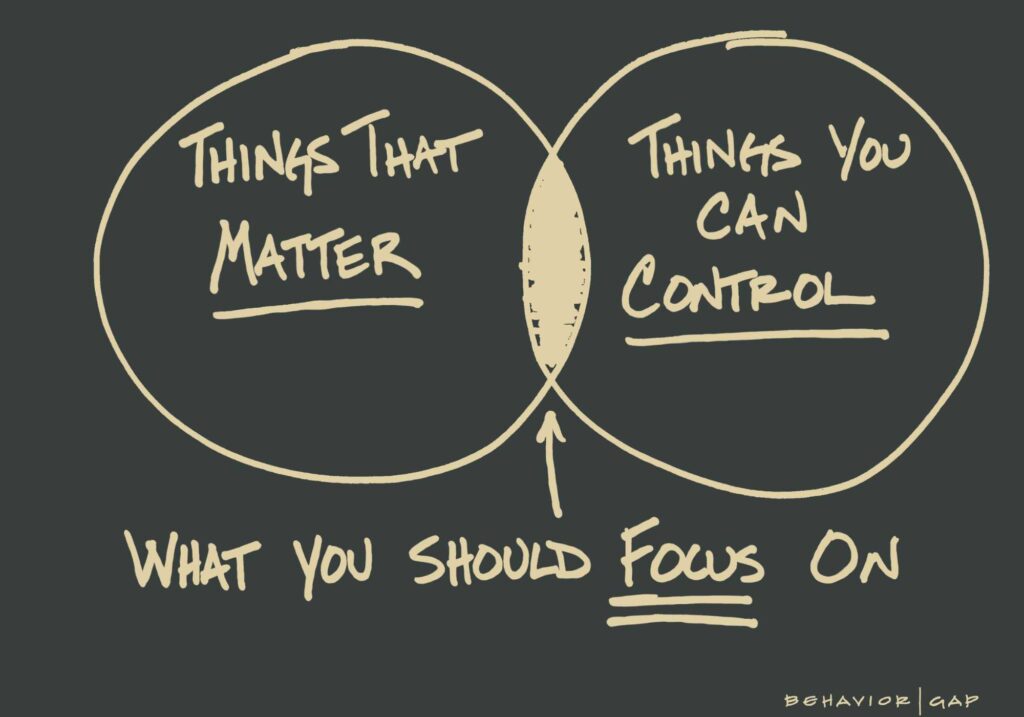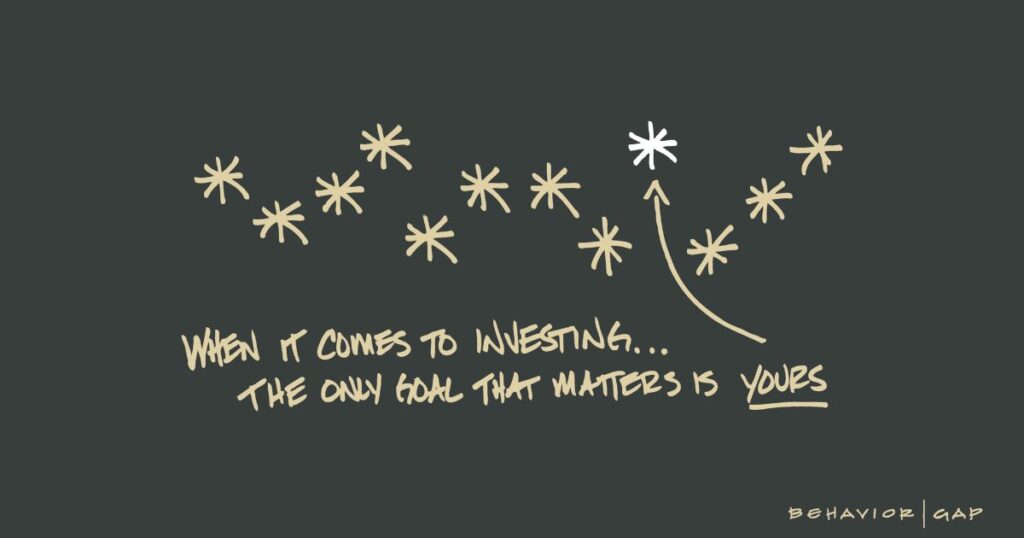Human Behaviour and Financial Planning
We were recently joined by internationally renowned columnist and speaker, Carl Richards, on our podcast, The Century Plan. Carl is a US based certified financial planner and the creator of the sketch guy column, which appeared weekly for a decade in the New York times.
Through his Behavior Gap sketches, Carl makes complex financial concepts, easy to understand. His work has influenced financial planners across the globe, and we sat down to talk with him about human behaviour in financial planning. This is part of the podcast.

Carl, we read in your recent newsletter, that you believe the single most important factor in a lifetime of successful investing is your own behaviour. When it comes to financial planning, what behaviours do you think we need to change?
I’ll give two examples. Let’s start with investing because it’s so easy to see. And it’s such a small part of what you do when you consider financial planning, but it’s often the part that everybody thinks about.
You can build the best portfolio ever created. And if it’s done right, there’s still no way to get rid of risk. That’s why you get paid more to own a portfolio of shares, than you do to have your money in an interest-bearing account at the bank. The reason you get paid more is because it’s going to go up and down.
And when it goes up and down. What happens? The financial pornography network, which here we call CNBC, I don’t know exactly what the equivalent is over in the UK, but everybody’s going to be yelling when it goes down. Scary, scary, scary.
Your neighbours are going be scared. Your friends at the pub are going to be scared. But you’ve built this beautiful portfolio, there’s no reason for you to be scared. When you guys built a portfolio for a client, you knew it was going to go down. You just didn’t know when, or by how much, or why.
But you knew, because you’re looking at history, it’s always gone up and down. Of course, it’s going to go up and down. You’re not surprised. You may be surprised as to why, or the precipitating event, the news, but you’re not surprised that it goes down.
But, as a human, you look at that going down and you’re surrounded by a bunch of other people who are scared. It’s really hard for you not to get scared. And so, you sell.
Well, your beautiful portfolio that was built for 30 years, knowing that it’s going to go up and down during those 30-year periods, the most beautifully built, technical skilled portfolio design. You had it. And you sold. I really think one big mistake like that a decade, and you might as well have left the money at the bank.

The other example I’ll give is around holistic financial planning.
The mistake we make most often, when it comes to financial planning, is basing our plans on other people’s goals. And I think what you see happening – I’m seeing it a lot with my age cohort right now, you know, 45 to 60 – is people showing up and saying, “I won”, pointing to their balance sheet.
And then they’re saying, is this what it was all for? What now? And I, think the best way to paraphrase that is Stephen Covey’s example: the last thing you want to do is spend your whole life climbing a ladder only to find out it’s leaning against the wrong wall. And I think that’s the big mistake in holistic financial planning. You never really thought about what the wall was like.
And the way to resolve that is not an event. It’s a practice. You can’t get it right today. You can only be a little less wrong each day forward. So, you might be sort of “I thought sailboats would be fun. I didn’t really like that. I thought I’d enjoy the beach. I thought I’d enjoy being retired and being on the ski patrol”.
Those are all examples I’ve heard in the last six months, where people have come back and gone, “Yeah, but I’m really bored”. So, I think not considering, not continually experimenting on the process, viewing financial planning as an event instead of this never-ending process of narrowing in on what you really want – because that’s what it means to be human – I think that’s the big mistake we all make there.
You can have a beautiful financial plan and then wake up one day and realise you’re standing on the wrong wall.
Change is not a sign of failure. It’s a sign of progress. Because so often we think that the plan should be written in stone. Well, it really should be barely drawn in pencil with a good eraser, because that’s called being human.
And it’s never too late to start thinking about it. You and I could both tell stories of 55-year-olds saying, “Gosh, you’re right. I’ve always wanted to do that. Why haven’t I? I can’t afford it.” Yes, you can afford it. It’s not about the money anymore. It’s about the heart and the head. So that’s what I think is beautiful about the work that you do as financial planners.
Watch Carl here.
ABOUT YELLOWTAIL
Founded by Dennis Hall, Yellowtail are the trusted financial planners who advise individuals & families across the UK. Yellowtail’s experts provide the clarity, control and confidence to guide you through financial planning, estate planning, pension transfers and investment management directing your journey towards a prosperous retirement and financial peace of mind.
